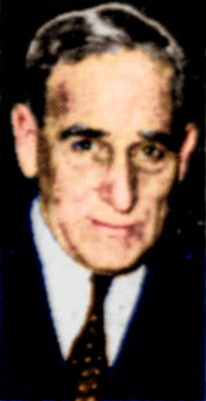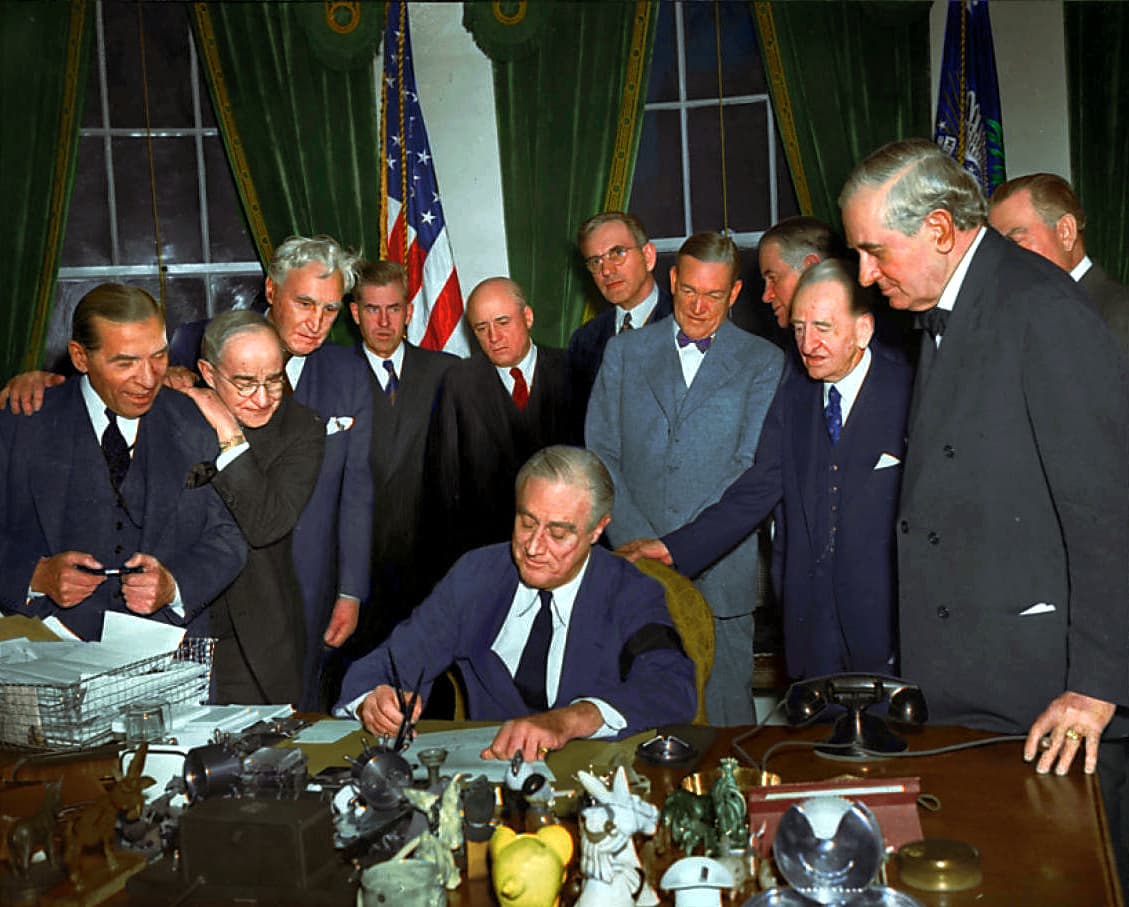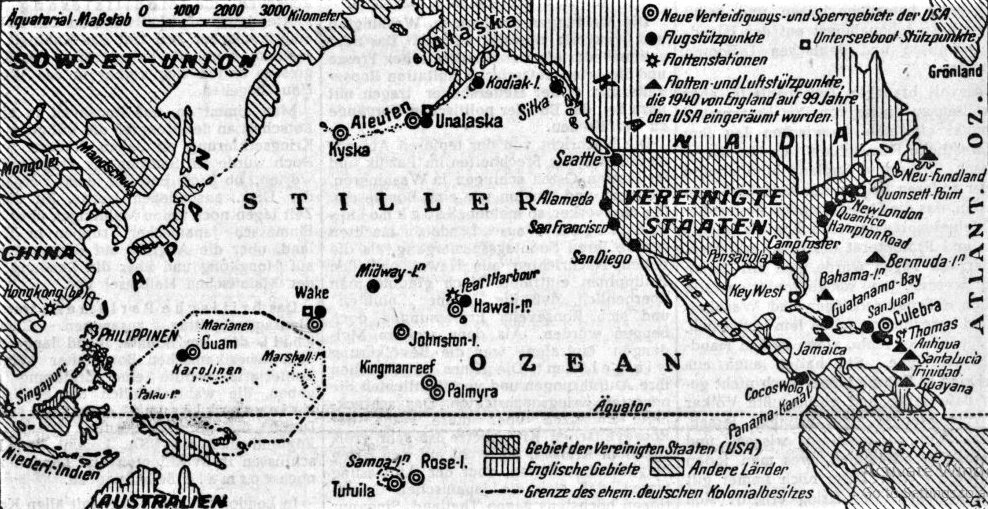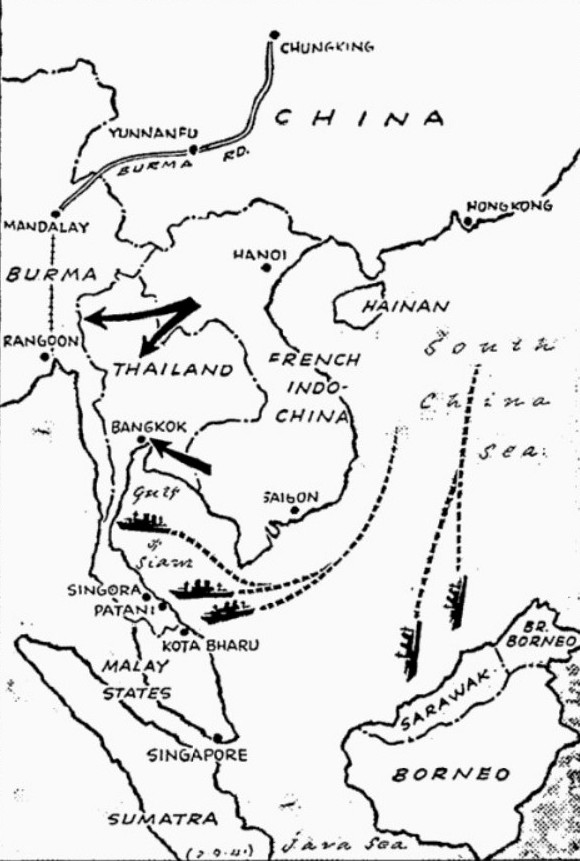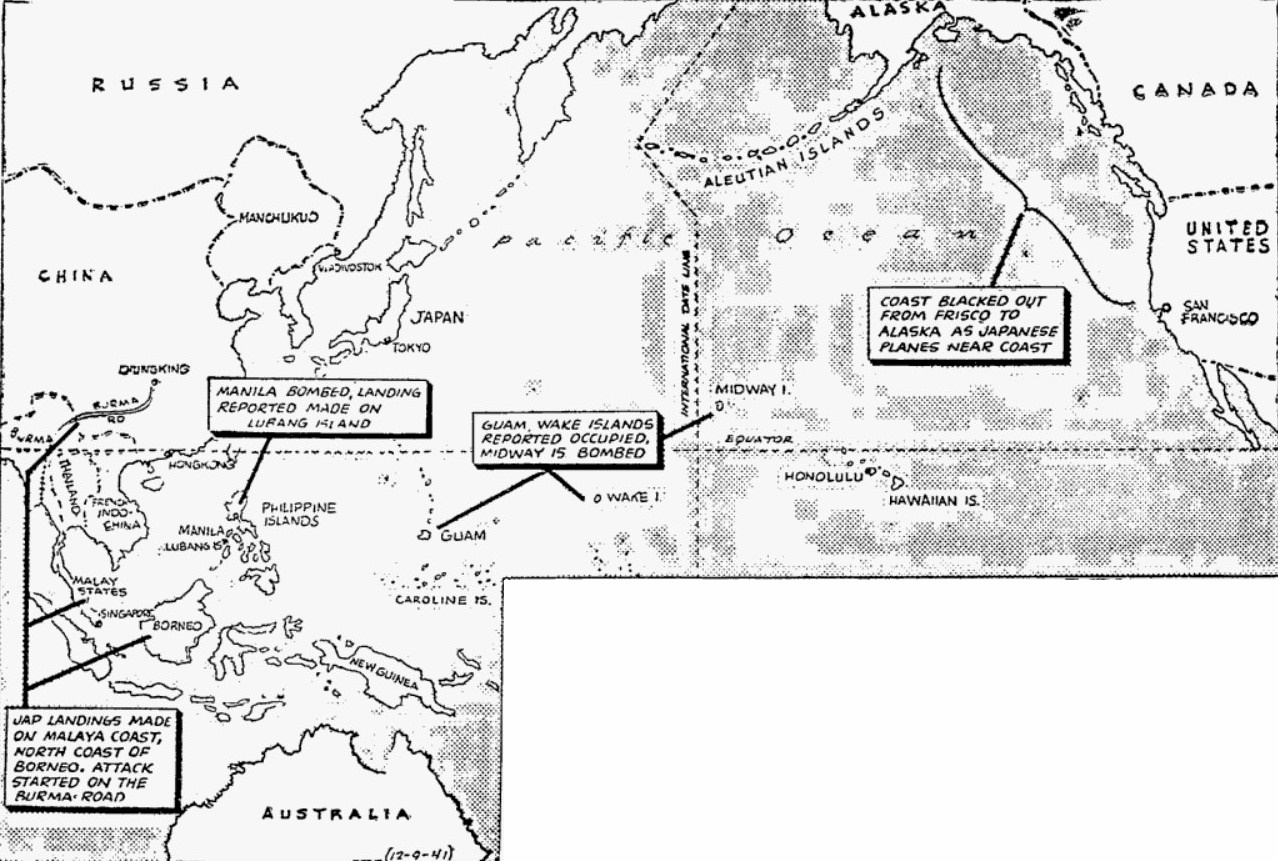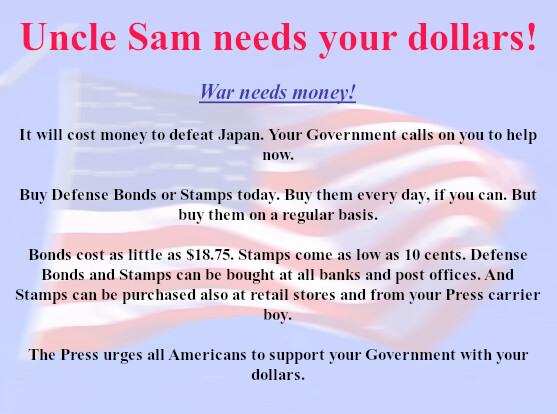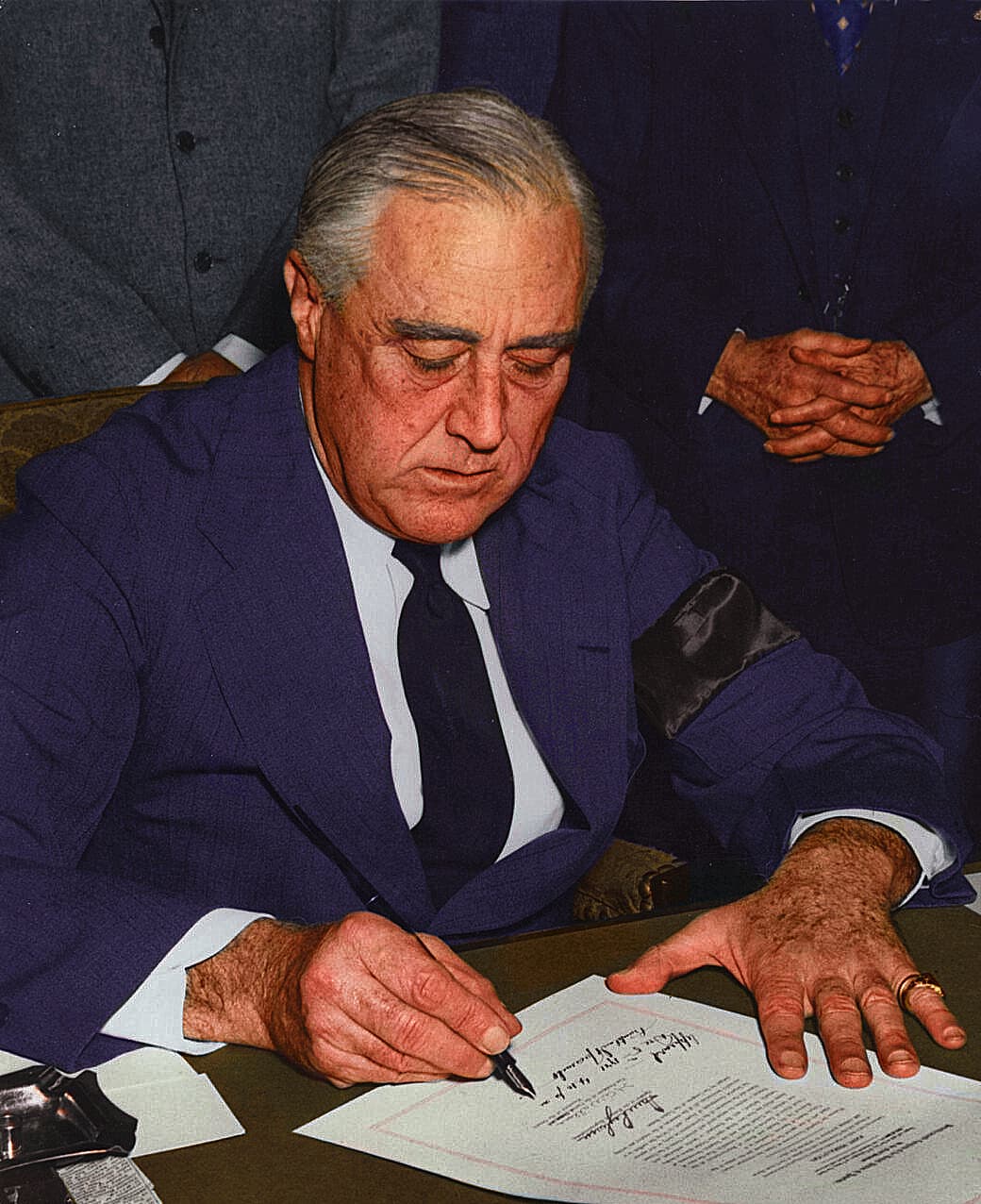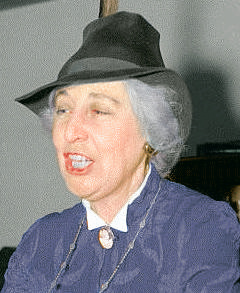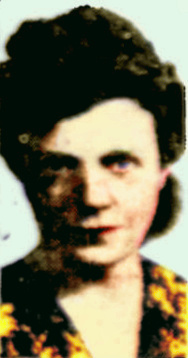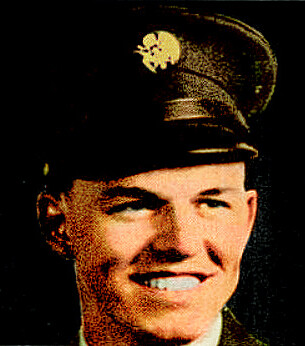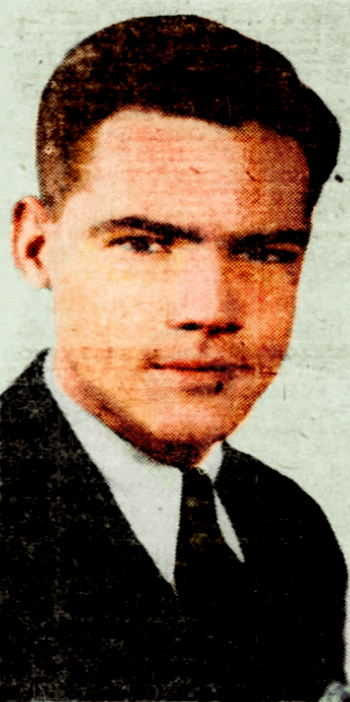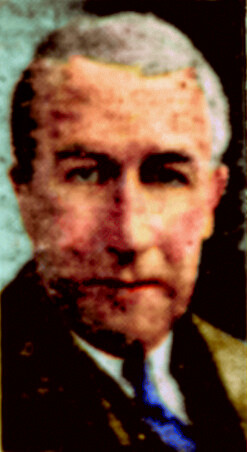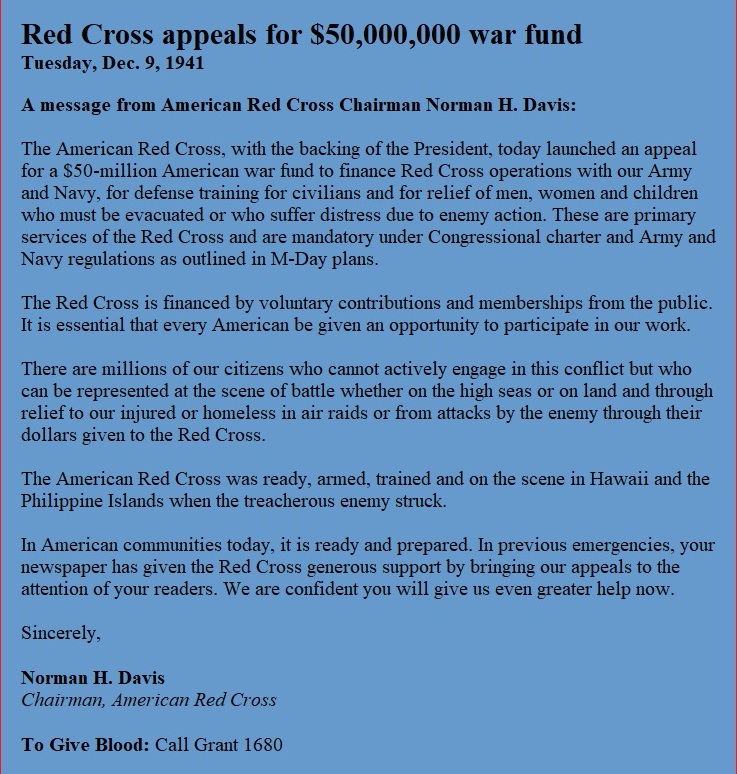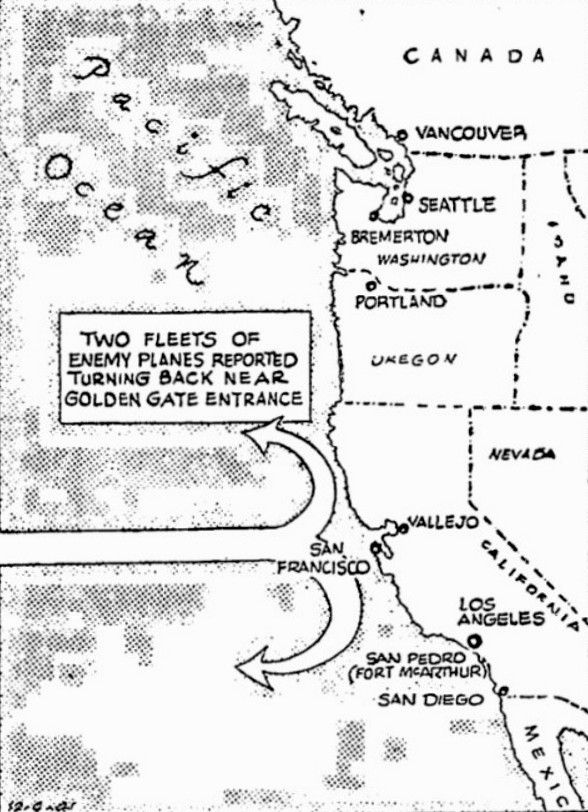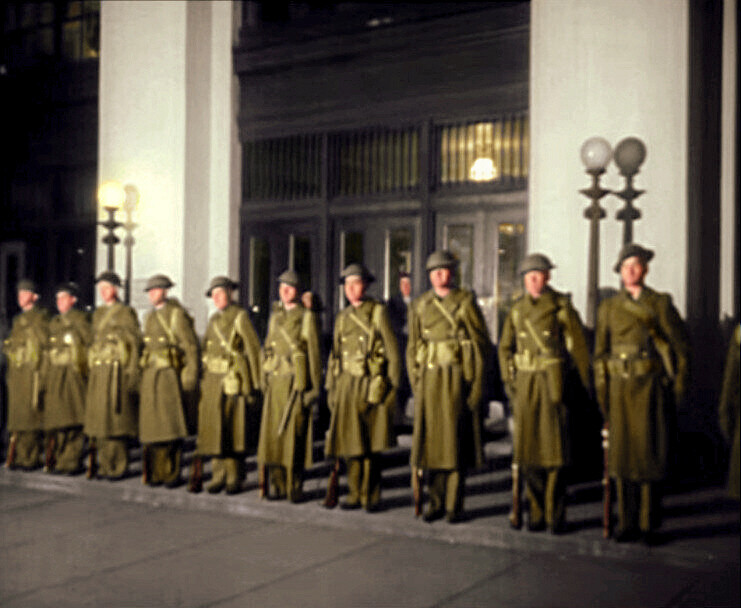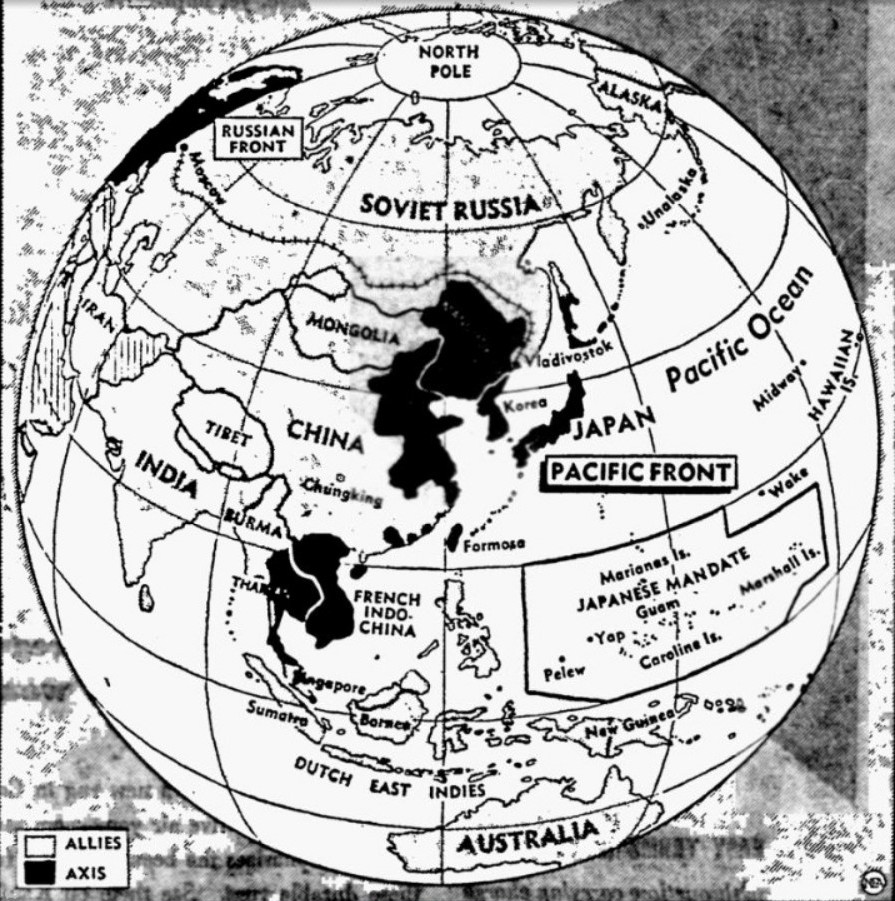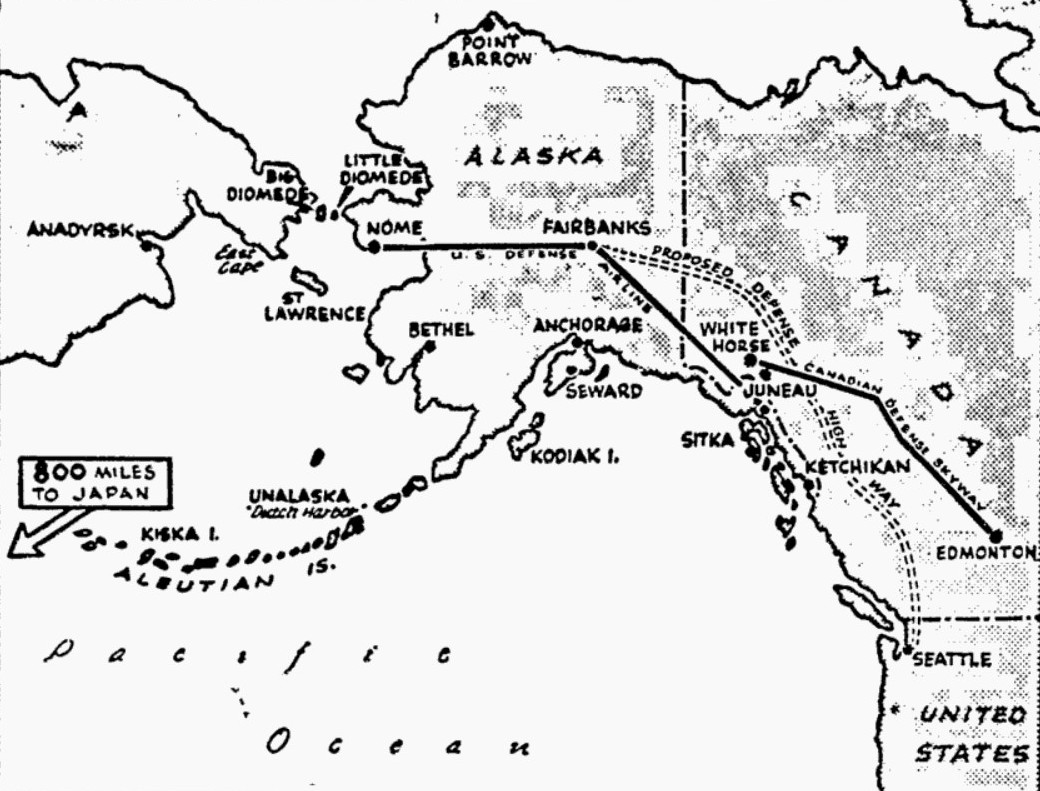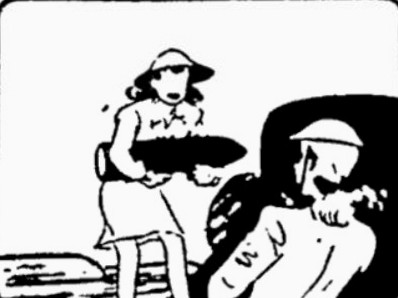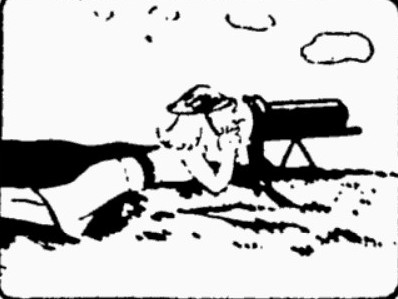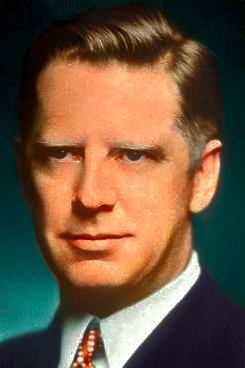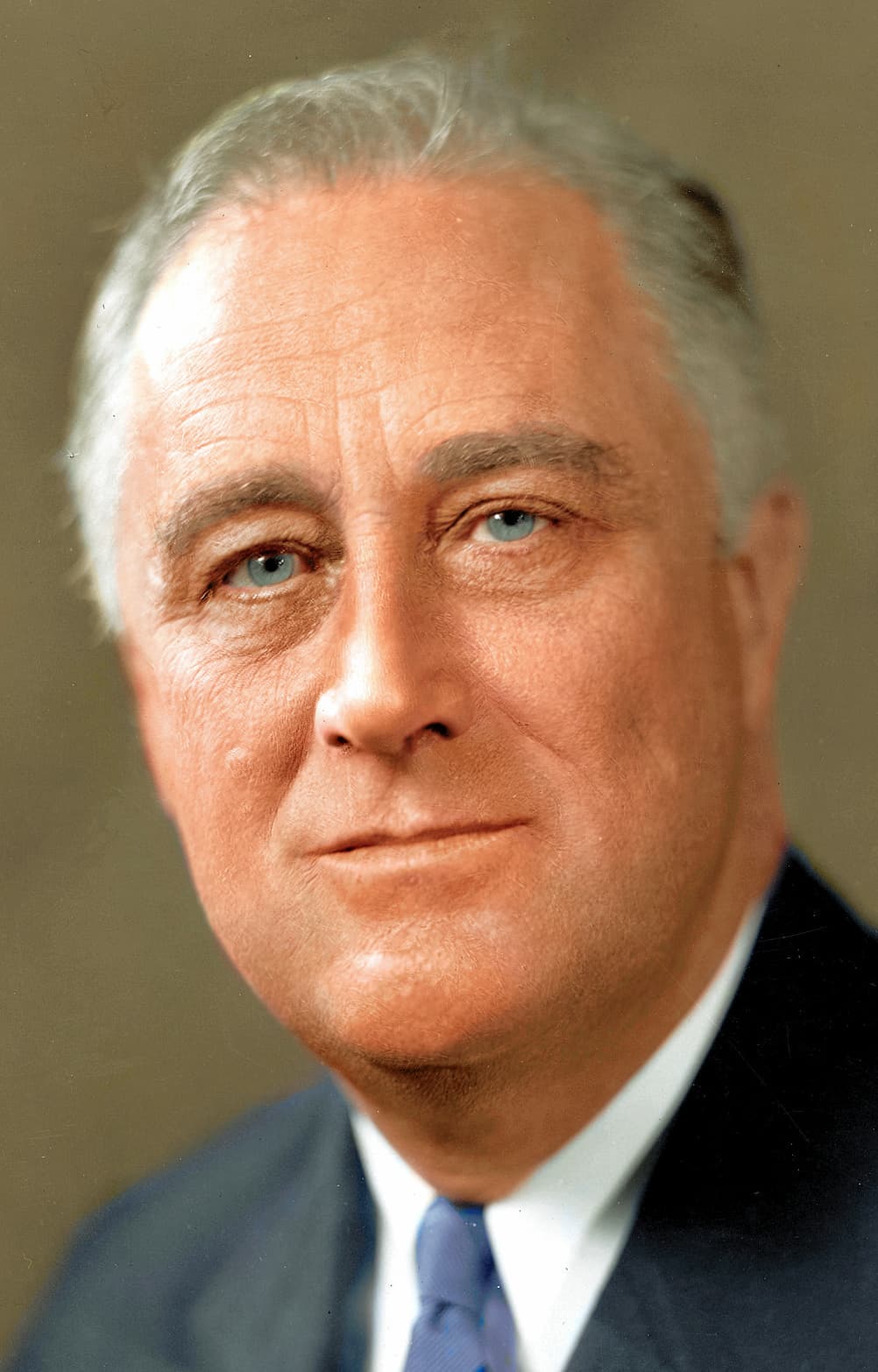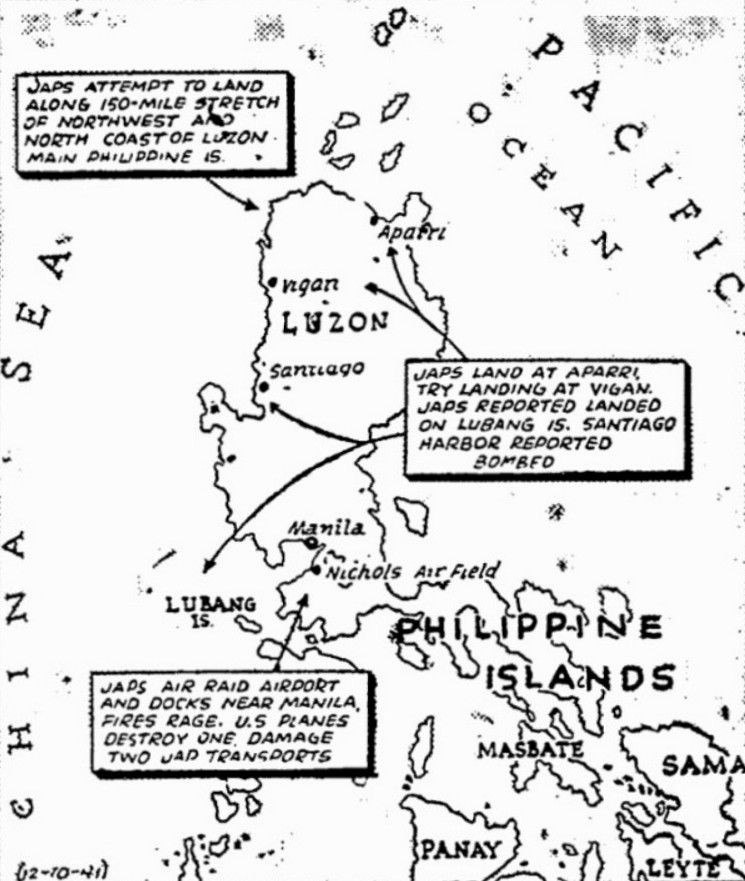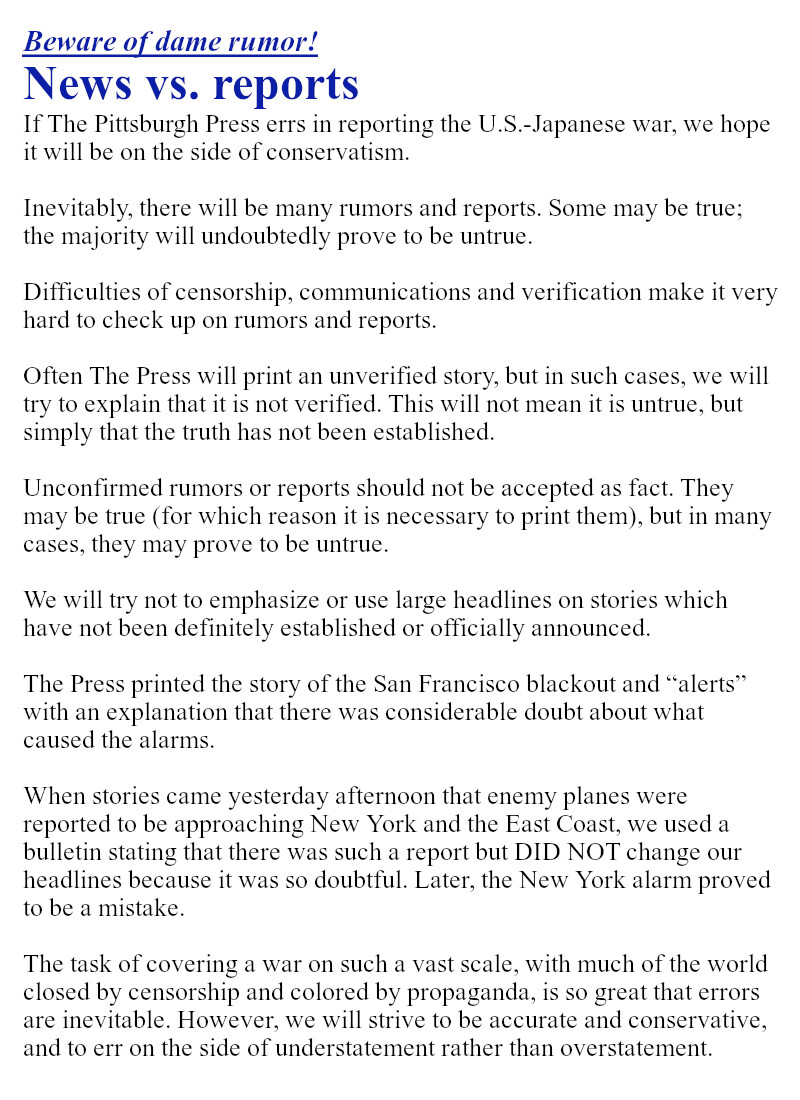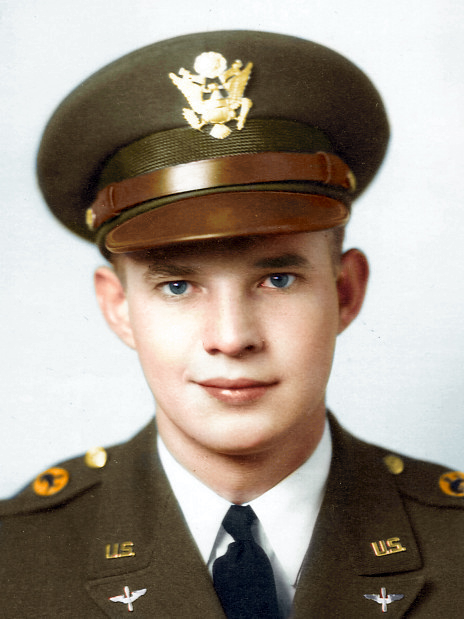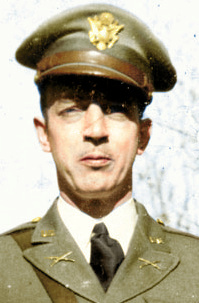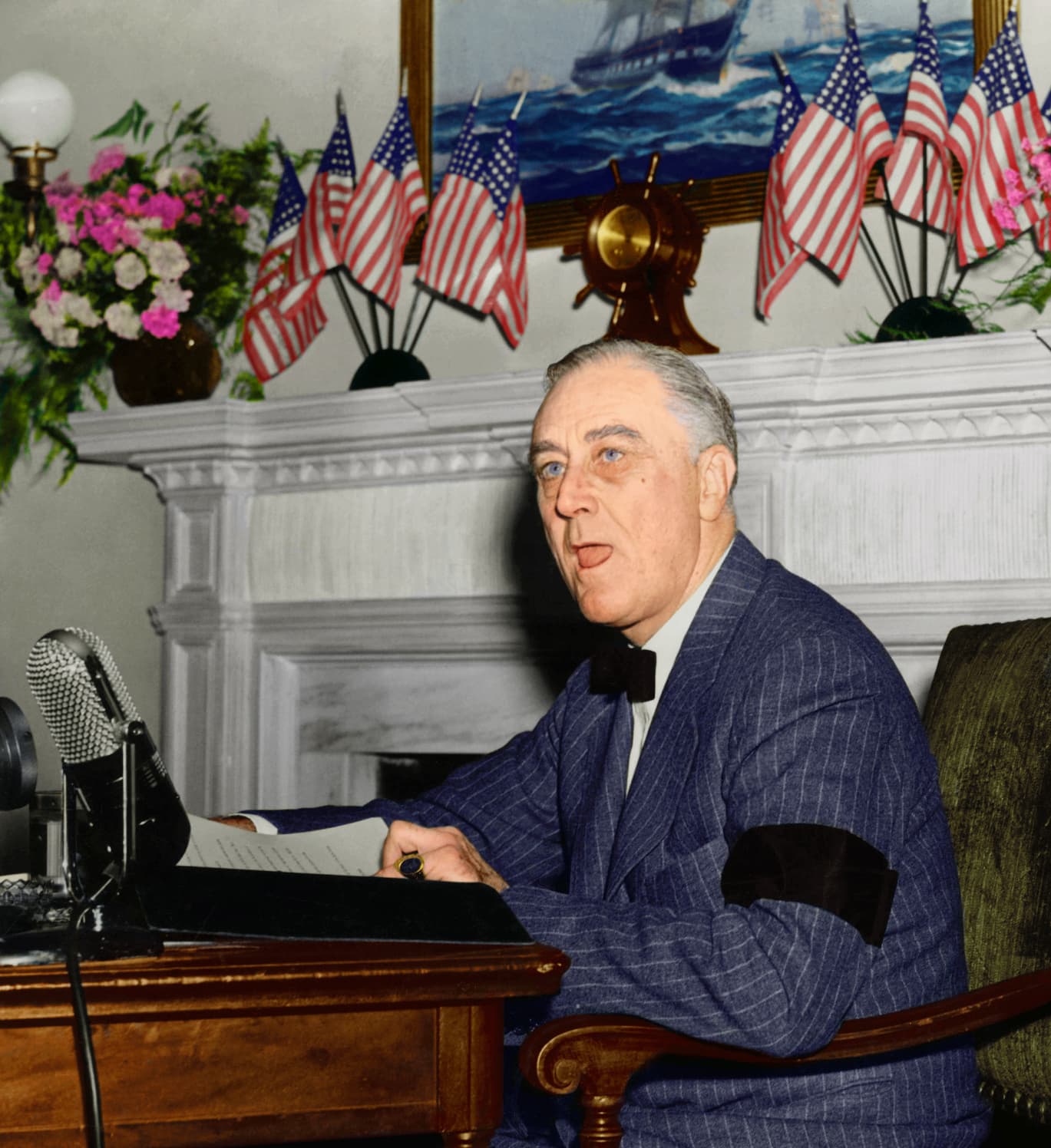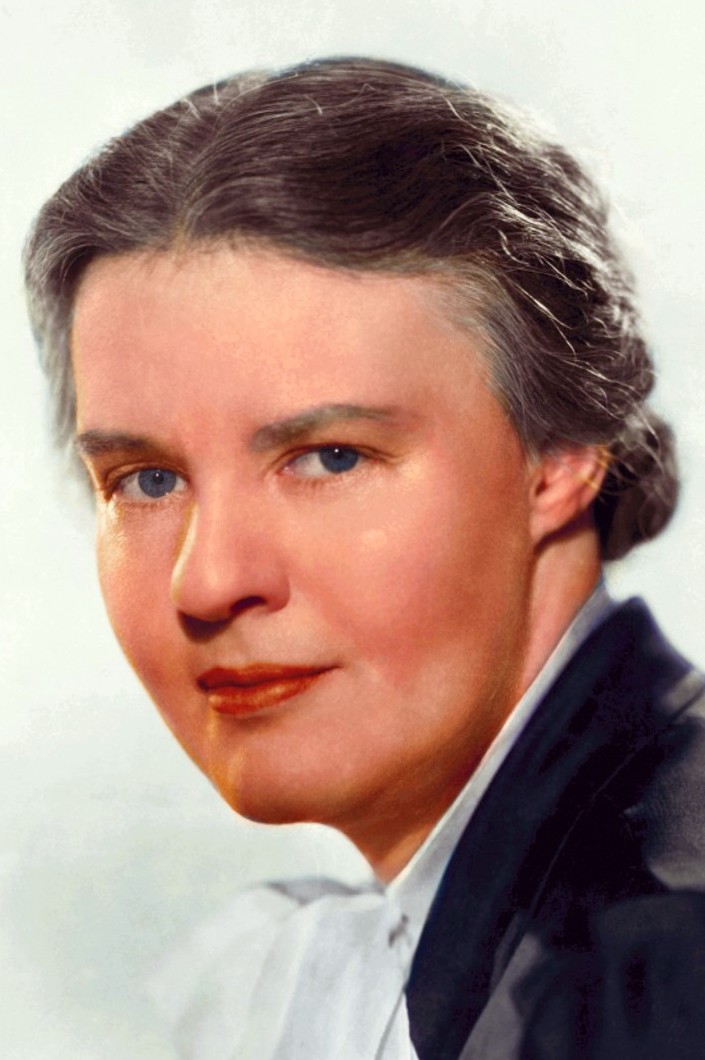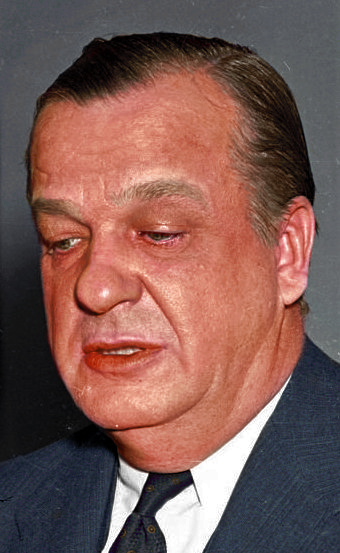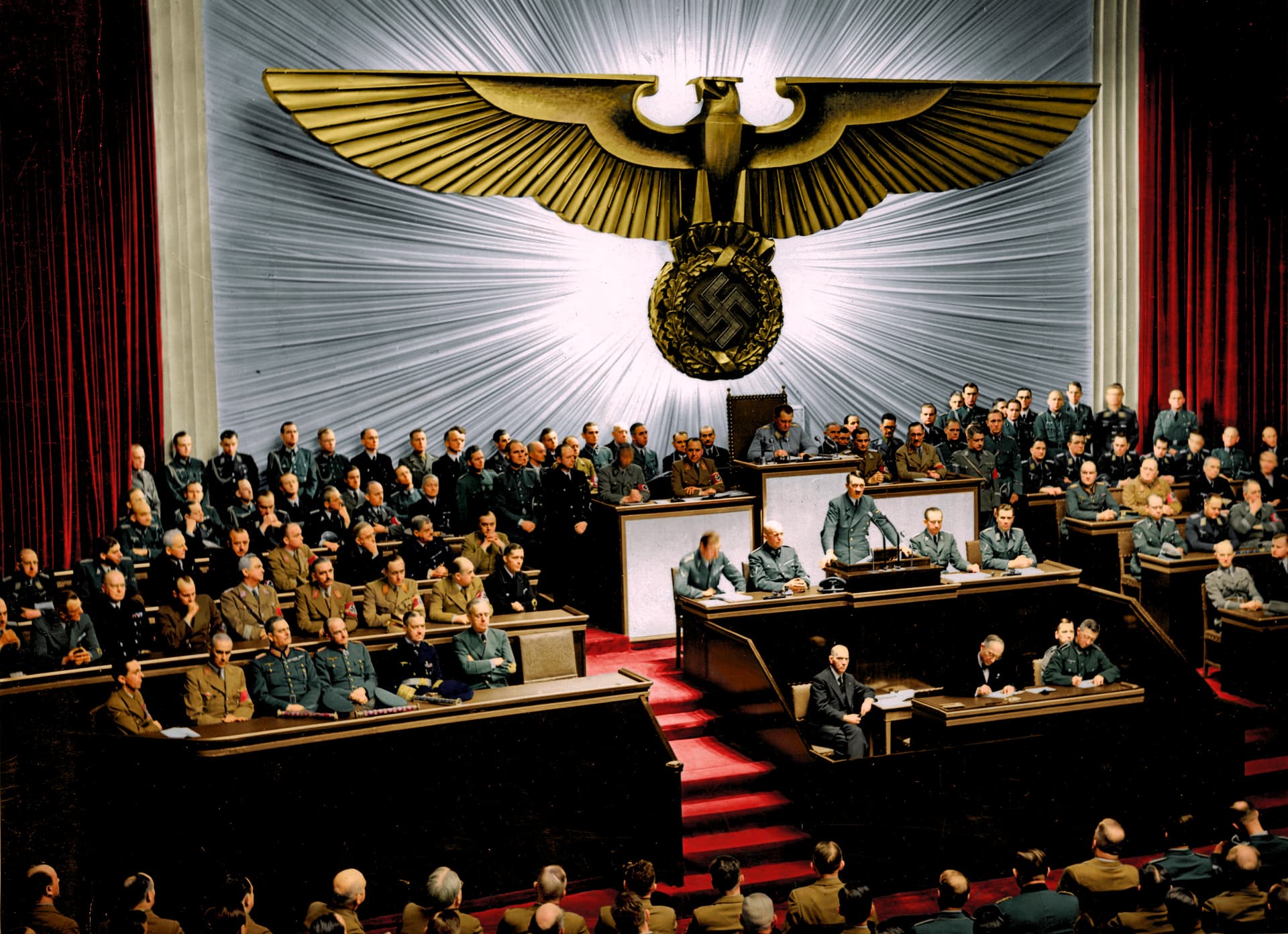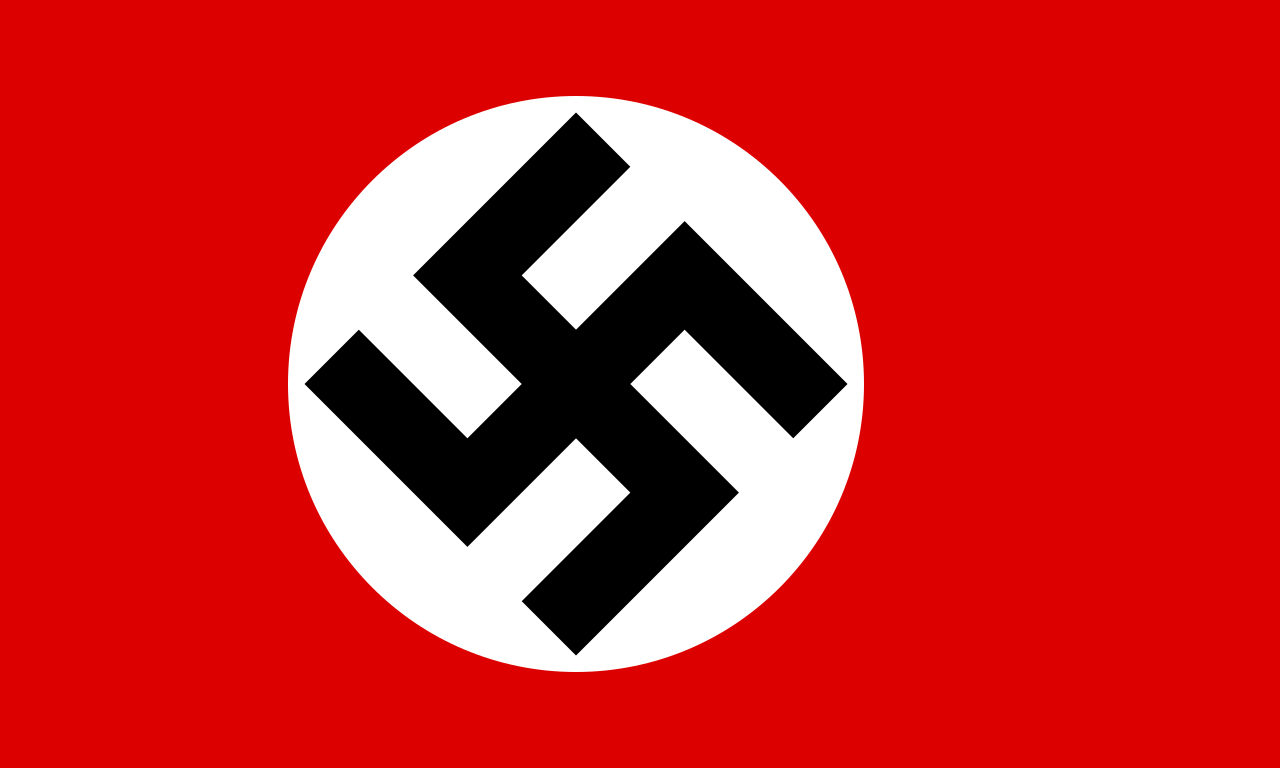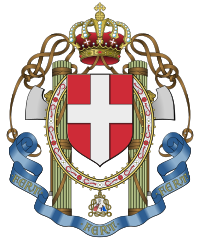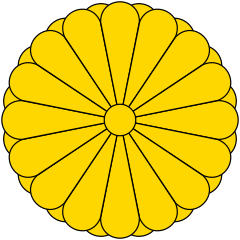SECRETARY OF STATE CONDEMNS TREACHERY IN SURPRISE JAP ASSAULT
Calls earlier steps to keep ‘peace’ false
Severing of relations by Tokyo timed to follow opening of attack
WASHINGTON (UP) – Japan’s plans to break off diplomatic negotiations here at the very moment Japanese planes were attacking the United States were shown today in a reconstruction of the final events in America’s efforts to preserve peace.
It was doubtful if Japan’s diplomatic representatives here knew of the exact action which Japan’s armed forces would take, but when they received their instructions from Tokyo, they must have known some decisive step was at hand.
Secretary of State Cordell Hull, releasing the documents which played a part in the final collapse of the U.S.-Japanese negotiations, said, “It is now apparent to the whole world that Japan in its recent professions of a desire for peace has been infamously false and fraudulent.”
Asked appointment
The Japanese asked at 1 p.m. EST yesterday for an appointment with Mr. Hull. That was 25 minutes before the attack on Hawaii. When they arrived at the State Department, it was 2:05 p.m., 40 minutes after the bombing had begun.
The timing was dictated by Tokyo because the decoding and translating of the lengthy document presented to Mr. Hull in rejecting American proposals for a peaceful agreement required several hours and could not have been judged so neatly.
The document, branded by Mr. Hull as “crowded with infamous falsehoods and distortions,” not only rejected the American statement of basic principles but accused the United States of conspiring for “extension of the war,” and charged that the United States, Great Britain and other powers were attempting to strengthen their position in the Far East at the expense of Japan.
The 70-year-old Mr. Hull, his peaceful efforts collapsing in the face of Japan’s refusal to negotiate further, told Ambassador Kichisaburo Nomura in a burst of indignation: “I must say that in all my conversations with you during the last nine months, I never uttered one word of untruth. This is borne out absolutely by the record. In all my 50 years of public service, I have never seen a document that was more crowded with infamous falsehoods and distortion – on a scale so huge that I never imagined until today that any government on this planet was capable of uttering them.”
The State Department and White House made public during the day President Roosevelt’s unprecedented peace appeal sent Saturday to Emperor Hirohito, the text of the Hull memorandum to the Japanese on November 26, and the Japanese reply. The president’s message may never have been received by the emperor.
Urged troop withdrawal
In it, Mr. Roosevelt urged the withdrawal of Japanese forces from Indochina and promised in return to attempt to obtain assurances that no other power would invade that French colony, now completely dominated by Japanese forces. The president said that a withdrawal of the Japanese from Indochina “would result in the assurance of peace throughout the whole of the South Pacific area.”
The Hull document of November 26 offered Japan a tentative agreement based on four basic American political principles and five basic economic principles. It went on to propose:
-
Conclusion of a multilateral non-aggression pact between the United States, Japan, Britain, China, the Netherlands, the Soviet Union and Thailand.
-
An agreement among the same powers for respect and protection for the territorial integrity of French Indochina.
-
Withdrawal of all military, naval, air and police forces of Japan from China and Indochina.
-
Neither the United States nor Japan to support any regime in China other than the national government located at Chungking.
-
Surrender of extraterritorial rights of Japan and the United States in China and efforts to obtain similar action by Britain and other powers.
-
Negotiations for a trade agreement between the United States and Japan, based upon reciprocal most-favored-nation treatment and binding raw silk on the American free list.
-
Removal of freezing restrictions on both sides.
-
Stabilization of the dollar-yen rate with equal allocation of funds by Japan and the United States.
-
Japanese withdrawal from the Axis.
-
Efforts to influence other governments to adoption of the basic American political and economic principles.
Those principles as outlined in the Hull document as basis to the American position were:
POLITICAL:
- Inviolability of territorial integrity and sovereignty of all nations.
- Non-interference in internal affairs of other countries.
- Equality of commercial opportunity and treatment.
- Reliance upon peaceful processes for settlement of controversies.
ECONOMIC:
- Non-discrimination in international commercial relations.
- Abolition of excessive trade restrictions.
- Non-discriminatory access by all nations to raw material supplies.
- Protection of interests of consuming countries and populations.
- Establishment of financial arrangements to help essential enterprises.
Japan replied that some of the items – those favoring Japan commercially and the one regarding abolition of extraterritoriality – were acceptable, but that Japan could not accept the proposal in its entirety.
The Japanese reply revealed some of the background on which the negotiations abruptly ended. However, since Hull denounced the document as filled with falsehoods, the accuracy of their interpretations was subject to question.
The Japanese note said that the premier of Japan, Prince Konoye, last August offered to meet President Roosevelt for a discussion of problems, but that the American government insisted the meeting should take place after an agreement had been reached on fundamental questions.
The Japanese also referred to American offers to “introduce” peace moves between China and Japan and of withdrawal of those offers. They mentioned a compromise proposal presented by Japan as recently as November 20, one which made no essential concessions.
Japs to stay indoors
NEW YORK (Dec. 7) – Mayor Fiorello H. LaGuardia, Civilian Defense Director, announced tonight he had ordered all Japanese nationals in New York City to “remain in their homes” until their status is established by the federal government.
H. O. Thompson: Fanatical Japs plan for march through all U.S.
Tokyo war theory is aimed at uniting all yellow peoples against whites; religion enlisted as ally to suicidal attack program
By H. O. Thompson, United Press staff writer
H. O. Thompson of the UP Washington staff returned a few months ago from Japan. In the following dispatch, he tells of the strategy planned by Japan in the event of war against the United States.
WASHINGTON (UP) – Japan’s war against the United States started in accordance with long-standing plans for fanatical attacks designed to knock out strategic American outposts quickly.
And it will be a racial war, aimed at uniting all yellow peoples against the whites – part of Japan’s movement to drive all Occidentals out of the Far East.
Japan has plenty of young zealots in uniform who would consider it an honor to die for their emperor in suicidal attacks on strongly held positions. They have an almost maniacal belief in the ability of what they call the spirit of Japan to meet and conquer overwhelming odds.
Discuss grandiose plans
Some of these men members of the Army and Navy were not reticent in talking of their grandiose plans with me in Tokyo.
Books have been written and published in Japan advocating various methods of prosecuting a war against the United States.
The central thesis was for lightning surprise attacks upon American outposts, even at the risk of complete annihilation of the attacking forces.
Hawaii, Manila and the Panama Canal were mentioned as the first points of contact for such tactics.
And along with armed attacks, Japan will undertake a tremendous effort through propaganda, terrorism and force to unite all Oriental peoples. The beginnings of that movement occurred years ago and have been going on steadily throughout the China war, which began in 1937.
Superiority preached
The usual method of operating it is through the Buddhist organization which preaches superiority of the Orientals. Priests of the militaristic Zen sect followed up the Armies in China with evangelistic methods designed to impose Japanese training on the Chinese and to also create a common front against the white races.
The Chinese have been told that the great powers of America and Britain are interested only in exploiting the resources of their rich country and should be driven from the Orient.
Toshio Shiratori, former Japanese ambassador to Italy and an ardent Axis supporter, told me that during the war with China and during the period when Japan was buying heavily off oil and scrap iron from the United States, Japan was storing more than half of what she obtained.
He claimed that Japan after four years of warfare was much stronger than when the China hostilities began.
Quick victory is aim
That may have been true last year, but the months of economic blockading of Japan undoubtedly have weakened her to the point of desperation. A quick victory would be her only hope.
Japan was the originator of the undeclared war. Her fleets were steaming toward Russian positions in Manchuria in 1904 and actually attacked Port Arthur before a declaration of war was made.
The plans for Japanese conquest of the United States, considered highly fantastic by all but the Japanese, envision the capture of Hawaii and attacks from there upon our West Coast. Occupation of California, Oregon and Washington would come in another year, according to some plans which actually have appeared in print in Japan. Then those plans envisaged another digging-in process and eventual attacks upon Chicago, New York and the Eastern Seaboard.
U.S. censors military data
Order affects information valuable to enemy
WASHINGTON (UP) – The government today censored publication of military information in this country and all cable and radio messages originating in the United States and her outlying possessions.
The Army, Navy, Federal Communications Commission, Treasury and Post Office Departments suppressed information that might be of value to the enemy.
The Navy and FCC said the control over cable and radio communications is censorship. The Army called the limitation on publication of military information “restriction,” rather than “censorship.”
Espionage Act enforced
Secret Service agents were ordered to take press credentials from Japanese newspaper correspondents immediately.
The War Department enforced the 1917 Espionage Act which prohibits publication of secret military information.
Brig. Gen. Alexander Surles, head of Army Public Relations, further warned that “irresponsible” news reporting would not be tolerated.
FCC Chairman James Lawrence Fly and the Defense Communications Board prohibited amateur radio stations operating except under special government license.
Most pilots grounded
The Civil Aeronautics Authority grounded all except a few private airplane pilots and urged police to guard airports, aircraft and field facilities. CAA Administrator D. H. Connolly issued an order temporarily suspending all private pilots’ certificates except those on scheduled airlines, those engaged in ferrying planes, pilots at training schools, aircraft and defense plants.
The Treasury issued orders to customs collectors barring Japanese nationals from leaving the United States and canceled all outstanding licenses permitting withdrawals from the $130 million of “frozen” Japanese assets in the United States.
Mowrer: Hand of Hitler seen in Jap’s attack
By Edgar Ansel Mowrer
WASHINGTON – Japan’s all-out assault upon all its Pacific adversaries, culminating in the tremendous attack upon Pearl Harbor shows all the evil genius of Adolf Hitler and gives the Japanese the same sort of temporary advantage that Hitler achieved by his surprise attacks against Poland, Holland, Belgium and Soviet Russia.
Not that the Japanese need any coaching in this sort of treachery. It was precisely by these methods that Japan, in the Russo-Japanese war, obtained an initial advantage over the Russian fleet that the latter was never able to make good. All those who hazarded a guess at what Japanese strategy would be, have been flabbergasted by the fact that the Japanese struck practically everywhere at once and the hardest at their chief adversary.
British and American naval people with whom I spoke during my recent trip to the Far East imagined that the Japanese would probably fight a decisive war, keeping their shifts at home and concentrating on air attacks and commerce raiding.
One admiral told me that the Japanese were outfitting several passenger ships as aircraft carriers and as commerce raiders. The efficacy of both types of ships has been demonstrated, not for defensive but for offensive warfare.
British Hong Kong was obviously being equipped for offensive warfare against Japan when I was there. The Japanese have taken the offensive against it. American Guam, virtually undefended, thanks to congressional unwillingness to “provoke” Japan, was marked down for attack. At Wake and Midway Islands, the wok of fortifying was in progress and thousands of Americans were working. Against all these places and chiefly against Pearl Harbor itself, the Japanese have sprung with their full power and the intensity of a Jack Dempsey determined to knock out his adversary in the first round.
Fortunately for this country, we did not desert China and so go into the war with many valuable allies.
The American administration probably will receive from Generalissimo Chiang Kai-shek an offer of all possible cooperation. It must be remembered that although the Japanese hold Canton and some of the southern Chinese ports, their occupation south of the Yangtze is so sketchy that several airports are in the hands of the Chinese. American fliers from Manila might well find it advantageous to call and refuel at these fields on their way to and from Japan.
The Chinese Army is the only effective pool of abundant manpower on our side in the entire area. This Army lacks heavy equipment and air protection; it has shown a marvelous capacity for defense but has lacked striking power. The American military mission under Gen. John Magruder will now hardly limit its activity to “advising” the Chinese. With Gen. Magruder are numerous American specialists whose tasks from now on will be to see that the Chinese armies are made ready quickly for offensive warfare. The question of getting supplies to China is serious but not insoluble.
The first group of American volunteer aviators, who are reserve officers from the American Army and Navy, actually in service of the Chinese government will unquestionably go into action as soon as is feasible. Contrary to what had been published, they had not been in service over the Burma Road before the Japanese attack on the United States.
No direct rescue of the Americans in Shanghai and other parts of Occupied China is longer feasible but with so many Japanese in this country, our government, it is felt, may be able to trade for their deliverance.
